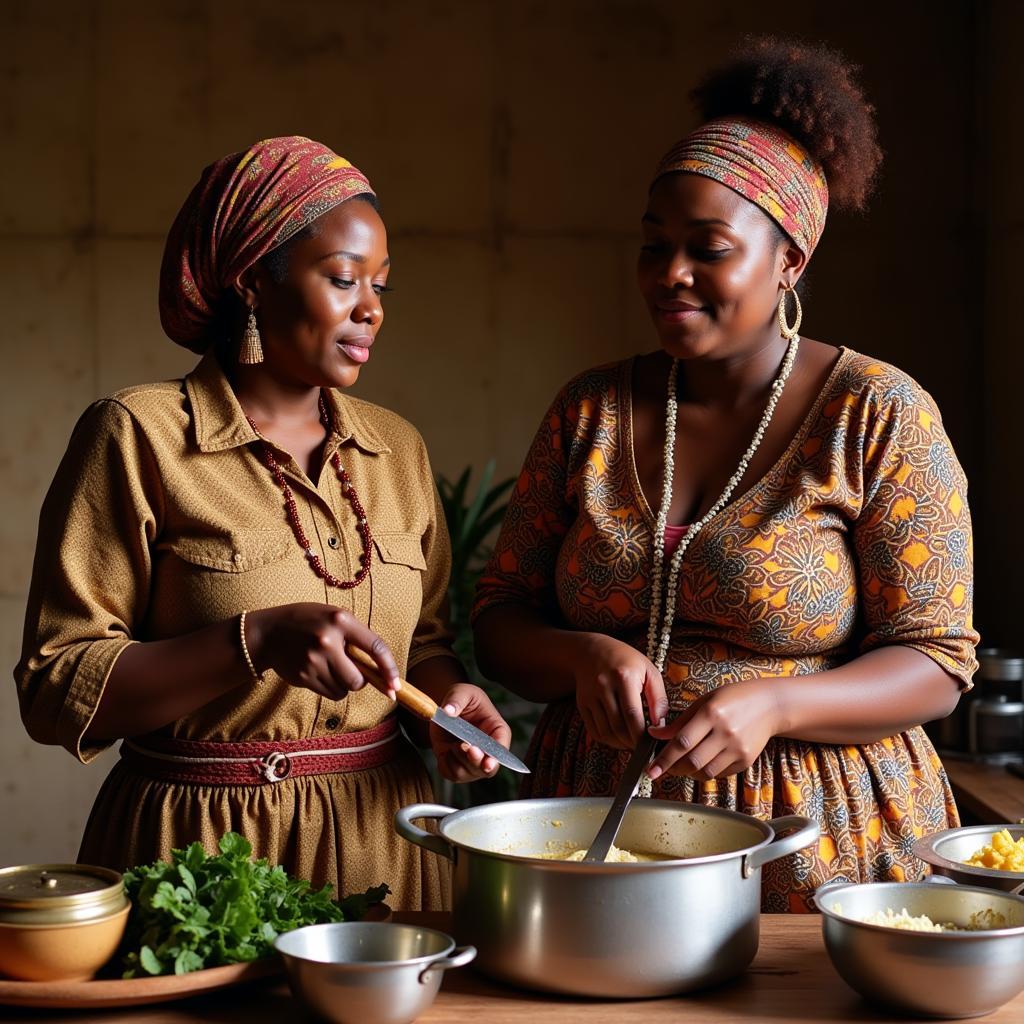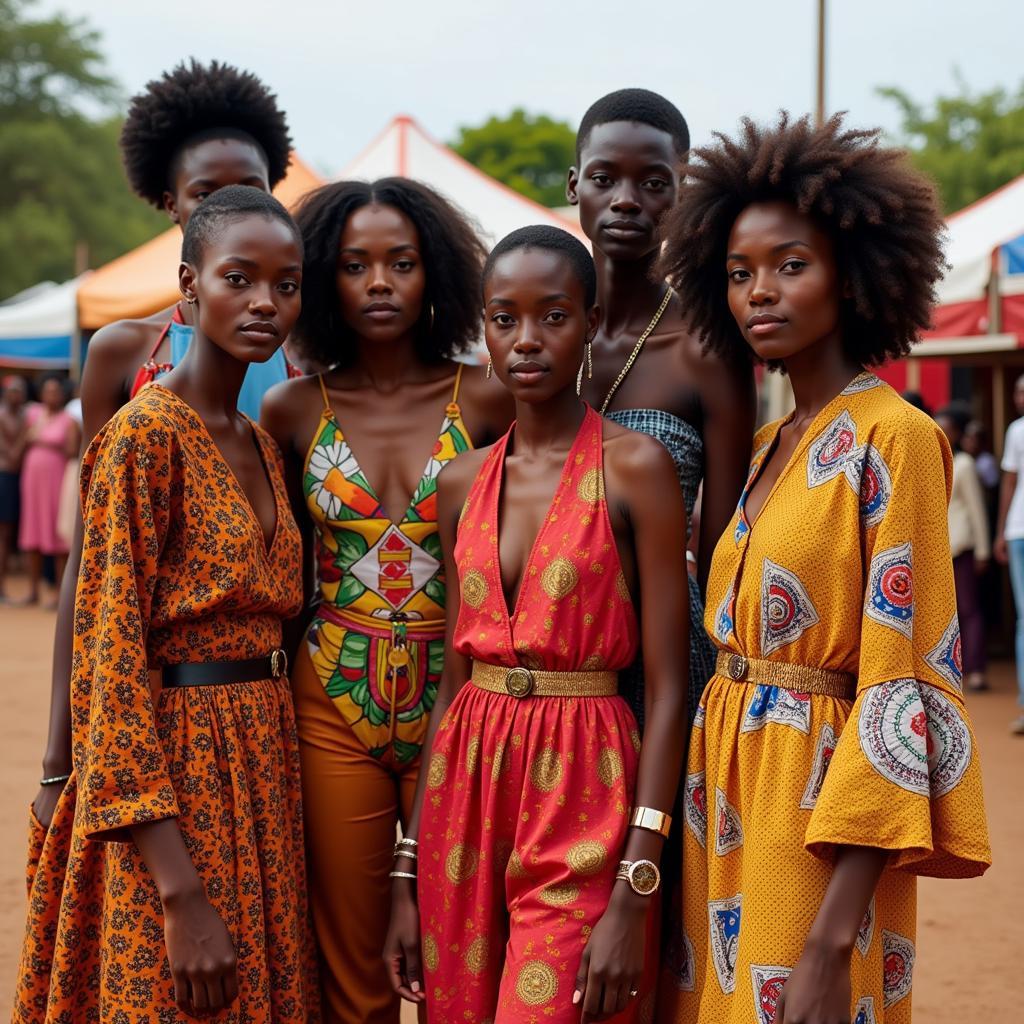Navigating African Daughter-in-Law Affairs: Traditions, Expectations, and Modernity
The dynamics between mothers-in-law and daughters-in-law are a source of fascination and discussion across cultures, and Africa is no exception. The continent’s rich tapestry of traditions adds unique layers to these relationships, often shaping the experiences of “African daughter-in-law affairs.” This exploration delves into the intricacies of these dynamics, examining both the traditional expectations and the influence of modernity.
The Weight of Tradition: Understanding Roles and Respect
In many African cultures, marriage extends beyond the union of two individuals; it represents the joining of families and lineages. This interconnectedness underpins the significance of the mother-in-law’s role. Traditionally, she holds a position of authority, regarded as a guiding figure responsible for upholding cultural values and ensuring the continuity of family traditions.
The daughter-in-law, entering this established family structure, is expected to demonstrate deference and respect towards her mother-in-law. This respect often manifests through specific customs, such as:
- Using Honorific Titles: Addressing her mother-in-law with specific titles that denote respect and acknowledge her senior position.
- Performing Domestic Duties: Contributing significantly to household chores, often under the guidance and supervision of her mother-in-law.
- Seeking Permission and Blessings: Customarily, daughters-in-law seek their mothers-in-law’s permission or blessings for important decisions, emphasizing the significance of her role in family matters.
 Traditional African Cooking
Traditional African Cooking
Beyond Stereotypes: Navigating Challenges and Building Bonds
While respect and tradition remain paramount, the narrative of “African daughter-in-law affairs” is far from one-dimensional. Challenges can arise from differing personalities, generational gaps, or varying interpretations of cultural expectations. Misunderstandings may occur, particularly in situations where communication styles clash or unspoken expectations create tension.
However, it’s crucial to recognize that these relationships are not inherently adversarial. In many instances, mothers-in-law become pillars of support for their daughters-in-law, offering guidance, sharing wisdom, and providing a sense of belonging in their new families. These bonds often deepen over time, evolving from relationships rooted in duty to ones built on mutual respect, affection, and shared experiences.
Modernity’s Influence: Shifting Dynamics and Evolving Roles
The winds of change are sweeping across Africa, impacting traditional family structures and, consequently, the dynamics between mothers-in-law and daughters-in-law. Urbanization, increased access to education, and evolving economic landscapes are reshaping traditional gender roles and family dynamics.
Modern African women, including daughters-in-law, are increasingly pursuing education, entering the workforce, and asserting their independence. These shifts influence expectations within families, leading to more egalitarian relationships. While respect for elders remains paramount, dialogues are opening up, allowing for more open communication and negotiation within families.
Finding Harmony: Embracing Respect, Communication, and Understanding
Navigating “African daughter-in-law affairs” in contemporary times requires a delicate balance of respecting tradition while adapting to evolving societal norms. Open and honest communication is crucial for fostering understanding and bridging generational gaps. Here are some key takeaways for navigating these relationships:
- Embrace Respect: Recognize the significant role mothers-in-law hold in many African families and approach the relationship with respect and consideration.
- Communicate Openly: Encourage open dialogue to address concerns, clarify expectations, and foster mutual understanding.
- Seek Common Ground: While differences may exist, focus on shared values, goals, and aspirations to build a strong foundation for the relationship.
Ultimately, “African daughter-in-law affairs” are as diverse and nuanced as the continent itself. By embracing respect, fostering open communication, and acknowledging the evolving dynamics within African families, these relationships have the potential to be sources of strength, support, and shared wisdom.



